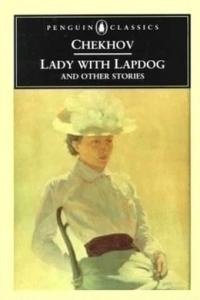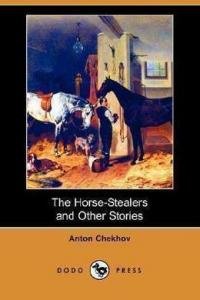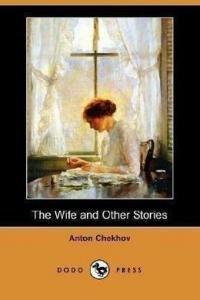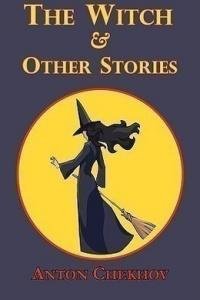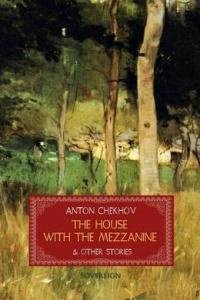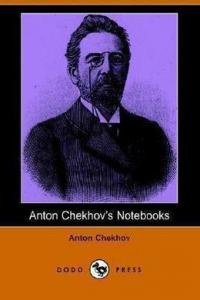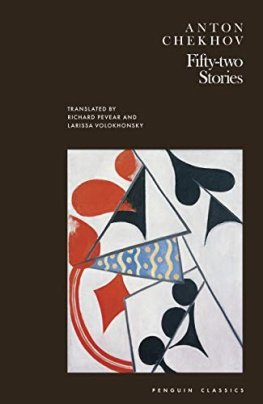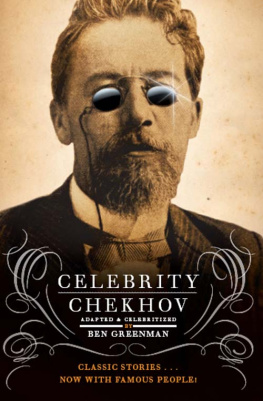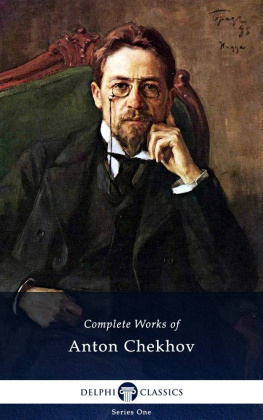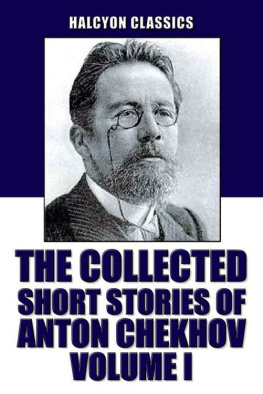The Lady with the Dog and Other Stories
Anton Chekhov
IT was said that a new person had appeared on the seafront: a lady with a little dog. Dmitri Dmitritch Gurov, who had by then been a fortnight at Yalta, and so was fairly at home there, had begun to take an interest in new arrivals. Sitting in Verney's pavilion, he saw, walking on the seafront, a fairhaired young lady of medium height, wearing a bret; a white Pomeranian dog was running behind her.
And afterwards he met her in the public gardens and in the square several times a day. She was walking alone, always wearing the same bret, and always with the same white dog; no one knew who she was, and every one called her simply "the lady with the dog."
"If she is here alone without a husband or friends, it wouldn't be amiss to make her acquaintance," Gurov reflected.
He was under forty, but he had a daughter already twelve years old, and two sons at school. He had been married young, when he was a student in his second year, and by now his wife seemed half as old again as he. She was a tall, erect woman with dark eyebrows, staid and dignified, and, as she said of herself, intellectual. She read a great deal, used phonetic spelling, called her husband, not Dmitri, but Dimitri, and he secretly considered her unintelligent, narrow, inelegant, was afraid of her, and did not like to be at home. He had begun being unfaithful to her long agohad been unfaithful to her often, and, probably on that account, almost always spoke ill of women, and when they were talked about in his presence, used to call them "the lower race."
It seemed to him that he had been so schooled by bitter experience that he might call them what he liked, and yet he could not get on for two days together without "the lower race." In the society of men he was bored and not himself, with them he was cold and uncommunicative; but when he was in the company of women he felt free, and knew what to say to them and how to behave; and he was at ease with them even when he was silent. In his appearance, in his character, in his whole nature, there was something attractive and elusive which allured women and disposed them in his favour; he knew that, and some force seemed to draw him, too, to them.
Experience often repeated, truly bitter experience, had taught him long ago that with decent people, especially Moscow peoplealways slow to move and irresoluteevery intimacy, which at first so agreeably diversifies life and appears a light and charming adventure, inevitably grows into a regular problem of extreme intricacy, and in the long run the situation becomes unbearable. But at every fresh meeting with an interesting woman this experience seemed to slip out of his memory, and he was eager for life, and everything seemed simple and amusing.
One evening he was dining in the gardens, and the lady in the bret came up slowly to take the next table. Her expression, her gait, her dress, and the way she did her hair told him that she was a lady, that she was married, that she was in Yalta for the first time and alone, and that she was dull there. The stories told of the immorality in such places as Yalta are to a great extent untrue; he despised them, and knew that such stories were for the most part made up by persons who would themselves have been glad to sin if they had been able; but when the lady sat down at the next table three paces from him, he remembered these tales of easy conquests, of trips to the mountains, and the tempting thought of a swift, fleeting love affair, a romance with an unknown woman, whose name he did not know, suddenly took possession of him.
He beckoned coaxingly to the Pomeranian, and when the dog came up to him he shook his finger at it. The Pomeranian growled: Gurov shook his finger at it again.
The lady looked at him and at once dropped her eyes.
"He doesn't bite," she said, and blushed.
"May I give him a bone?" he asked; and when she nodded he asked courteously, "Have you been long in Yalta?"
"Five days."
"And I have already dragged out a fortnight here."
There was a brief silence.
"Time goes fast, and yet it is so dull here!" she said, not looking at him.
"That's only the fashion to say it is dull here. A provincial will live in Belyov or Zhidra and not be dull, and when he comes here it's 'Oh, the dulness! Oh, the dust!' One would think he came from Grenada."
She laughed. Then both continued eating in silence, like strangers, but after dinner they walked side by side; and there sprang up between them the light jesting conversation of people who are free and satisfied, to whom it does not matter where they go or what they talk about. They walked and talked of the strange light on the sea: the water was of a soft warm lilac hue, and there was a golden streak from the moon upon it. They talked of how sultry it was after a hot day. Gurov told her that he came from Moscow, that he had taken his degree in Arts, but had a post in a bank; that he had trained as an operasinger, but had given it up, that he owned two houses in Moscow. And from her he learnt that she had grown up in Petersburg, but had lived in S since her marriage two years before, that she was staying another month in Yalta, and that her husband, who needed a holiday too, might perhaps come and fetch her. She was not sure whether her husband had a post in a Crown Department or under the Provincial Counciland was amused by her own ignorance. And Gurov learnt, too, that she was called Anna Sergeyevna.
Afterwards he thought about her in his room at the hotelthought she would certainly meet him next day; it would be sure to happen. As he got into bed he thought how lately she had been a girl at school, doing lessons like his own daughter; he recalled the diffidence, the angularity, that was still manifest in her laugh and her manner of talking with a stranger. This must have been the first time in her life she had been alone in surroundings in which she was followed, looked at, and spoken to merely from a secret motive which she could hardly fail to guess. He recalled her slender, delicate neck, her lovely grey eyes.
"There's something pathetic about her, anyway," he thought, and fell asleep.
A week had passed since they had made acquaintance. It was a holiday. It was sultry indoors, while in the street the wind whirled the dust round and round, and blew people's hats off. It was a thirsty day, and Gurov often went into the pavilion, and pressed Anna Sergeyevna to have syrup and water or an ice. One did not know what to do with oneself.
In the evening when the wind had dropped a little, they went out on the groyne to see the steamer come in. There were a great many people walking about the harbour; they had gathered to welcome some one, bringing bouquets. And two peculiarities of a welldressed Yalta crowd were very conspicuous: the elderly ladies were dressed like young ones, and there were great numbers of generals.
Owing to the roughness of the sea, the steamer arrived late, after the sun had set, and it was a long time turning about before it reached the groyne. Anna Sergeyevna looked through her lorgnette at the steamer and the passengers as though looking for acquaintances, and when she turned to Gurov her eyes were shining. She talked a great deal and asked disconnected questions, forgetting next moment what she had asked; then she dropped her lorgnette in the crush.
The festive crowd began to disperse; it was too dark to see people's faces. The wind had completely dropped, but Gurov and Anna Sergeyevna still stood as though waiting to see some one else come from the steamer. Anna Sergeyevna was silent now, and sniffed the flowers without looking at Gurov.
"The weather is better this evening," he said. "Where shall we go now? Shall we drive somewhere?"

